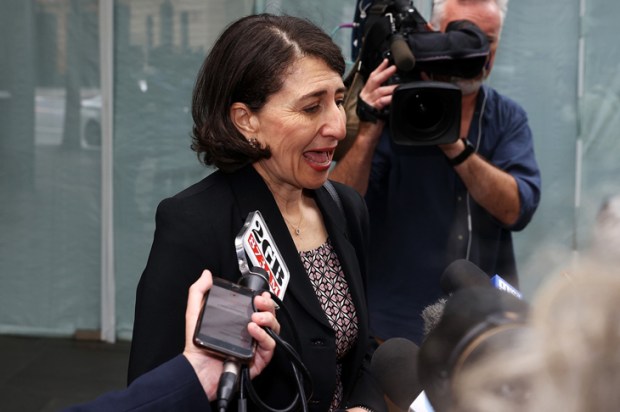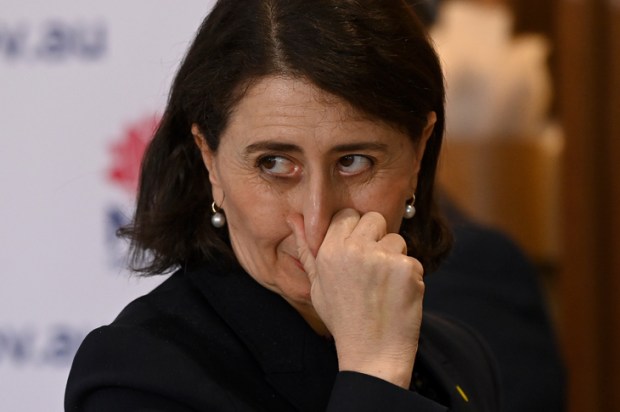When people retire from politics and are recognised for their service, there is an established hierarchy of naming rights. Local councillors get a street in a new housing subdivision named after them. State MPs might qualify for an amenities block or even an entire park named in their honour.
Nationally, the greatest accolade, reserved for the elite level of parliamentary performance, is to have a suburb of Canberra named after you. Please remember this the next time you’re visiting our national capital and pass through Latham.
After years of delay, the media have finally developed a comparable system, an appropriate way of remembering their journalists. Here’s how it works.
One of the quirks of the English language is the use of the word ‘working’ as an adjective. It is used to describe two kinds of beasts: working journalists and working dogs (there are also ‘working girls’ but, unlike Craig Thomson, we won’t go there). Under the new system, when journalists hang up their notepads and listening devices, their names will live on in canine form. I cannot think of a more appropriate honorarium.
This became clear at Fairfax recently when one of its police roundsmen, Les Kennedy, passed away. At a benefit night at the Kauri Foreshore Hotel in Sydney, the NSW Police Commissioner, Andrew Scipione, paid tribute to Les’s work. At this point it is best to allow the Sydney Morning Herald to take the story forward:
Scipione announced that the police dog squad would name its next-born male puppy Leslie, in honour of Kennedy. Another guest won the right to name the next female puppy, providing it’s a name starting with the letter L.
What an honour and what a prize. Leslie, however, is quite an androgynous name, so the naming rights for the female dog seem predetermined. Mind you, I once knew a beautiful bitch called Juicy Lucy, so perhaps an alternative is available to the lucky winner.
This system is bound to take off in the Canberra Press Gallery. The ACT division of the RSPCA has been placed on alert, looking for appropriate puppies. If they come across a dwarf dog with a drinking problem, it will be known as Glenn.
A yappy little terrier which refuses to breed will be named Fran. The most unfortunate dog in the pound, the one which actually caught the truck, will be called Michelle.
A clever sorting process has been created for the other naming rights. The pup that can jump the highest in trying to reach a bag of raw sausages will be known as Laurie. When a picture of the Pope is lowered into the kennel, the dog which watches it lovingly, entranced by the papal stare, will be named Dennis.
The resident mongrel in the pound is a Queensland-bred show-dog called Kevin. Any puppy caught licking and sniffing around this mutt will be called Peter.
Each year the new names will be announced at the Press Gallery’s Mid-Winter Ball, in keeping with its traditional theme. It’s always a dog of a night.
•••
Kelvin Thomson is one of the ALP’s most intelligent and tenacious parliamentarians, the sort of person who would have made a fine cabinet minister. There’s just one problem: he once wrote a reference for Tony Mokbel, a key player in Melbourne’s gangland wars.
What is it about Labor’s Thomson Twins? They seem to be auditioning for an appearance in Underbelly. At least Kelvin can claim one (untainted) achievement. Well before Kevin Rudd seized the idea, he was the first member of caucus to suggest that the leader of the party should select Labor’s front bench.
This slice of history came to mind while reading the current edition of the Monthly. A Press Gallery graduate, Annabel Crabb, has tried to piece together the behind-the-scenes story of Rudd’s Prime Ministership, in particular his dictatorial style. The magazine’s front cover promotes it as ‘the story Gillard can’t tell’, the real reason she shafted Kevin.
One senses a pattern at work. Steadily, Gillard and her supporters are allowing anti-Rudd material to seep into the public arena. Their aim is to correct the illegitimacy of her leadership, to say to the Australian people: ‘If you knew what we knew about Kevin, you wouldn’t blame us for getting rid of him.’ Based on the Crabb piece, they have a lot more work to do.
The chronicle of Rudd’s crimes is quite mild, covering just three aspects of his government:
1) He adopted Kelvin Thomson’s proposal and picked his own ministry (a power Gillard has kept for herself);
2) He established a powerful sub-committee of cabinet, the so-called Gang of Four (of which Gillard was one); and
3) He invited his staff to attend the Gang’s meetings.
This is piddling stuff, especially when placed in its historical context. There are always complaints about the administrative style of Labor prime ministers. Gough Whitlam was notorious for running his government like a preschoolers’ picnic, an exercise in rolling chaos. Bob Hawke was known as ‘Old Jellyback’ for his inability to make firm decisions in cabinet. Paul Keating was accused of neglecting his desk duties, of lounging around The Lodge all morning, supposedly in his pyjamas, listening to Mahler. One day, when the factions have no further use for her, there will be gripes about Gillard.
Perhaps Rudd was an erratic tyrant. In their background briefings to Crabb, however, Gillard’s gang has fallen short of proving this point. As a proud, founding member of the Kevin Rudd is a Tosser Club, I want to hear more.
The post Latham’s law appeared first on The Spectator.
Got something to add? Join the discussion and comment below.
Get 10 issues for just $10
Subscribe to The Spectator Australia today for the next 10 magazine issues, plus full online access, for just $10.














Comments
Don't miss out
Join the conversation with other Spectator Australia readers. Subscribe to leave a comment.
SUBSCRIBEAlready a subscriber? Log in